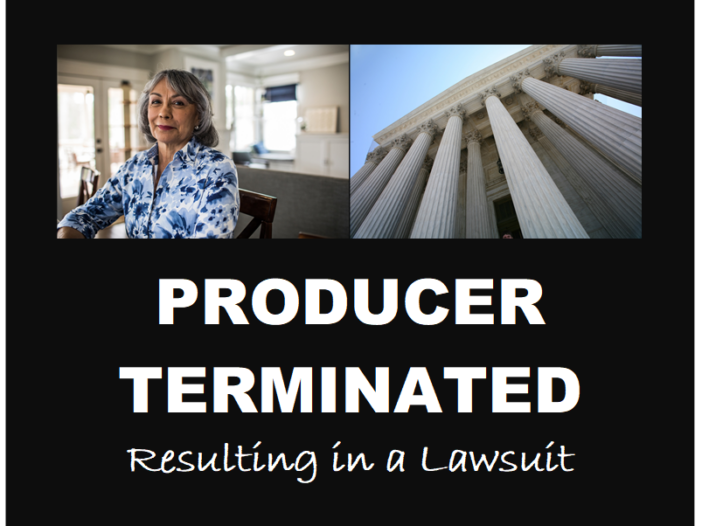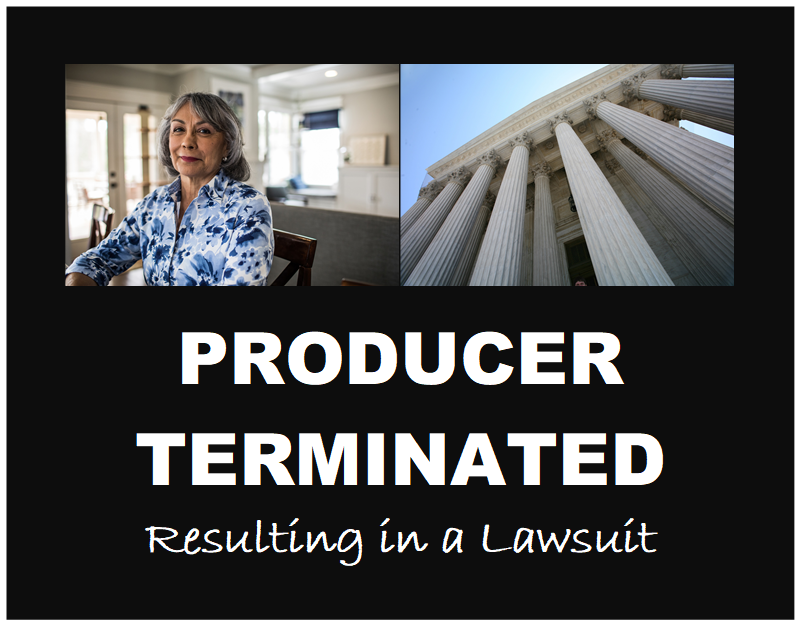
An agency’s actions to boost production and push out unproductive employees can look like age or sex discrimination to the person on the other side. That’s what an Indiana agency learned.
The producer began working for the agency when she was 47 years old. After 10 years, she signed a contract that set commission rates for policies she sold on her own and for those she sold in a co-management arrangement with another (male) producer. The next year, the owners sold the agency. The seller stayed on with the new owners until his retirement five years later. The new owners retained her and many of the seller’s other producers and abided by the existing contract.

Unfavorable things began happening to her around the time of the previous owner’s retirement in 2012. First, he reassigned his accounts to producers within the agency, most of them to his daughter. However, he assigned to another male producer four school accounts that she had helped him service. He also assigned one account that generated $200,000 in revenue to the male producer she collaborated with. That client was located in a city where she handled almost all of the agency’s other clients. Worse, the seller told the producer to keep the reassignment a secret. She learned of it a year after he retired.
That same year, the agency reduced the commission rate paid to each producer for co-managed accounts by 30%.
In 2013, the agency launched a voluntary program to encourage producers to collaborate on accounts where they were familiar with specific industries. She asked the chief operating officer if she could participate in the program. He told her producers could join the program only if they were nominated but she would be suggested because of her experience with medical accounts.
According to the COO, the agency’s president rejected her nomination in favor of a younger male colleague. The president later did not recall discussing her participation with the COO.
In the summer of 2013, the agency introduced a producer validation program under which producers had to generate at least $350,000 in revenue. The next winter, they announced that they would terminate producers who failed to validate. The woman who filed this suit was one of five producers identified as not not validated, though she did not learn that until she met with the president in March.
The two disputed the numbers but agreed that she had not met the threshold. He told her that she would be terminated in July if she did not meet the threshold but offered her the option of retirement. If she decided to retire, he would lobby senior management to allow her to stay on to the end of the year. Neither of them raised the possibility of a performance improvement program.
Of the four other unvalidated producers (all men,) one resigned, one elected to retire at the end of the year, and two were placed on performance improvement programs that were unsuccessful. One was terminated and the other resigned.
She decided not to retire, was placed on a performance improvement plan, and received a warning of non-performance in early 2015. At the same time, the agency demanded that producers sign addendums changing the terms of their contracts. She and a younger male producer declined to sign it and were terminated on April 1.
She sued, but the court ruled in 2019 that she had failed to make her case. She could not prove discrimination when a younger male producer was fired for the same reason she was. Nor had she proved age discrimination; citing her conversation with the agency president about her failure to validate, the judge wrote, “… a single mention of retirement as alternative to termination isn’t proof of age discrimination.” He also wrote that the agency did not commit sex discrimination when the seller reassigned accounts, noting that most of those accounts went to this daughter.
It does not sound like this producer had much of a case. However, agencies that find themselves needing to tighten requirements on producers should remember that producers may see the actions differently than the agency does. Staying aware of that possibility and handling changes carefully can help prevent suits like this one.
















